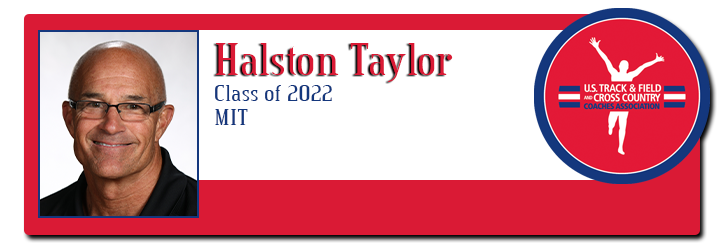

Halston Taylor made a home – and an impact – at MIT.
So much so that, after his retirement in December 2021, the MIT Department of Athletics, Physical Education and Recreation (DAPER) created an endowment in his name for the position of Director of Cross Country and Track & Field Operations/Head Coach.
Who would have thought that Taylor, one of the fastest harriers over 1500 meters to ever come out of the University of South Carolina track & field program, would eventually spend nearly 40 years building MIT into a perennial national and regional powerhouse in NCAA Division III?
Taylor sure didn’t, but the career eventually caught up to the former 4:05 miler.
“I actually never really planned on coaching, but the opportunities seemed to keep falling in my lap,” Taylor told TrackYack in February 2018. “My plan was to get my PhD in Exercise Physiology, but some things got in the way, so I stopped avoiding the coaching opportunities.”
Taylor actually started coaching long before he commenced his career in Massachusetts at Granby High School and Mohawk Trail Regional School after receiving his master’s in Exercise Physiology from UMass Amherst. He told TrackYack, “I coached myself [in college] due to not having a coach with the exception of my freshman year at South Carolina.” Turns out that Taylor had a knack for it, after all, setting a 1500m PR of 3:47.14 in 1976 that is still among the fastest in program annals (Taylor is ranked fourth as of August 2022 – nearly 47 years later).
Fast forward to September 15, 1982: Taylor landed in Cambridge.
Skip ahead to December 11, 2021: Taylor rides off into the sunset.
Between those dates, Taylor engineered a Hall-of-Fame career at MIT in which his teams finished top-10 at the NCAA Championships 33 times, won 68 combined New England Women’s and Men’s Athletic Conference (NEWMAC) titles, 44 New England Division III Track & Field Championships and 10 cross-country regional crowns. Taylor’s men won each of the 22 cross country titles awarded by the NEWMAC since the sport was first offered in 1998, while his women snagged 14 in a row from 2007 to 2021. The Engineers also swept the men’s and women’s outdoor track & field slate clean in 2007 and then from 2009 to 2019.
Nestled amongst that team success were 12 podium finishes – nine by the women’s program alone. Five of those nine top-4 placements came in 2011 and 2015, which led to MIT being named the Deb Vercauteren NCAA Division III Women’s Program of the Year in each of those years, an award given out to the top-finishing institution at each of the NCAA Championships (cross country, indoor track & field, outdoor track & field). The Engineer women went 3-3-4 in 2011 and just missed another podium three-peat in 2015 with a 3-4-5 combination. (Not to be outdone, MIT’s men were named the Al Carius NCAA Division III Men’s Program of the Year in 2022, buoyed by a runner-up finish in cross country – Taylor’s last season on the job.)
Individual accolades were plentiful for the Engineers under Taylor’s diligent direction as well. MIT athletes collected 17 individual NCAA titles and more than 350 All-America plaudits. On top of that, the Engineers earned 13 NCAA Elite 90 awards, bestowed to student-athletes with the highest cumulative GPA participating at the finals site for each of the NCAA’s 90 championships.
Taylor’s coaching award trophy case is just as bountiful. He is a 23-time USTFCCCA Regional Coach of the Year and a 46-time NEWMAC Coach of the Year honoree.
“When I was fortunate enough to get the initial position of men’s head cross country coach and men’s assistant track and field coach in 1982, I had no plans, or sense of remaining at MIT for what would end up being 39½ years,” Taylor said when he announced his retirement. “What kept me here were myriad situations and opportunities; the fact that MIT is an excellent place to work for both me and my family, the mentorship and leadership supplied by (former MIT head coach) Gordon Kelly in my early years, and the amazing opportunity to work with the best and brightest student-athletes in the world. This job never seemed like work.”
